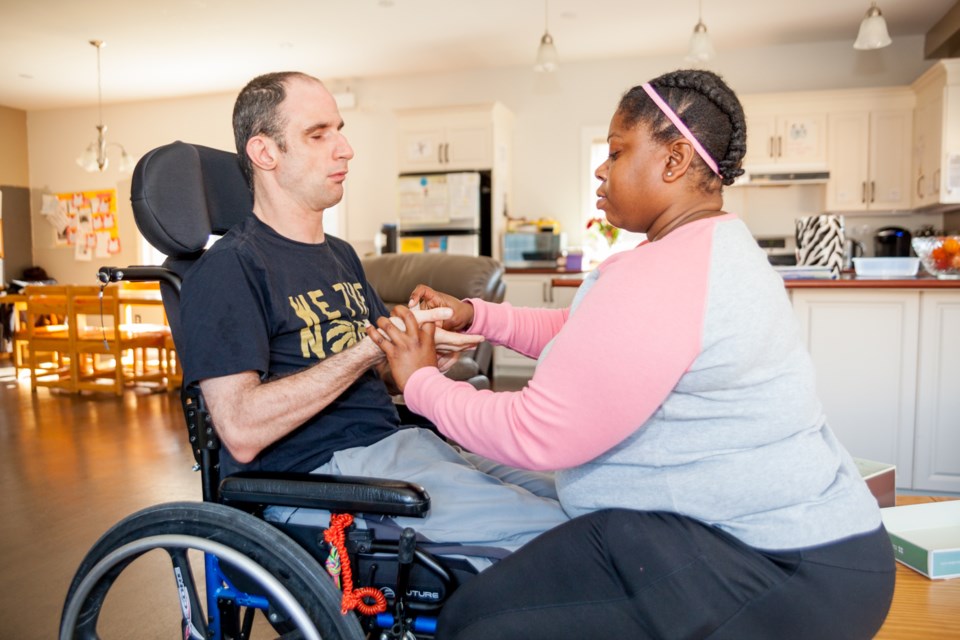For more than three decades, DeafBlind Ontario Services has provided a range of different services to assist individuals who are deaf, hard of hearing, non-verbal and deafblind reach their goals and enrich their lives.
The organization was initially created in 1989 as Independent Living Residences for the Deafblind in Ontario (ILRDBO) after a group of parents lobbied the Ontario government as advocates for their children with deafblindness.
Their goal, explained Shannon Girard, who works as a community engagement manager in Simcoe County, was to attempt to secure funding for community-based supported living programs.
In 2007, ILRDBO changed its name to DeafBlind Ontario Services and in 2021, officially amalgamated with Array Services to improve specialized services across the province.
DeafBlind Ontario has been providing services in Simcoe County for approximately 10 years, said Girard, noting they initially started in the Innisfil area before coming to Barrie, where they operate a supportive residential program in the city’s south end.
“We customize our approach with each individual in a unique way. Every individual we support is different with their deafblindness, so they experience a varying degree of sensory loss (and) each person will use their own unique, individual way of communicating,” Girard told BarrieToday.
The organization is now recruiting in Simcoe County. Individuals who work as intervenor act as the eyes and ears of the individual with deafblindness through their sense of touch.
“We do a lot of hands-on (training) showing them what would be needed to replicate what it is like to work alongside these individuals. We really are a champion of doing with and not for," Girard said. "We want the individuals to experience everything for themselves. We don’t want to deprive them of that experience to be an active participant in an activity.”
The simple act of going for a walk is a great example of how staff work to bring what most people take for granted to those they work with, she added.
“Ninety-five per cent of what you learn is from (sound or touch) and when those both are compromised, it’s our job to bring that world to them and allow them to experience that world,” Girard said. “If I can't see it nor can I hear it, my world kind of ends at the end of my hand. It’s our job to bring that world to them and allow them to experience it and discover what’s out there.”
An intervenor has to be unique in how they go about things, she added, noting there is not a one-size-fits-all technique.
“You need to be very well-versed on the individual you’re supporting — what works for them or what doesn’t work for them — and sometimes you don’t know until you try,” she said. “We really take a lot of pride in being active participants in the community.
"Being out there, we may go about it not always in the most conventional way. Sometimes that does take some time, especially when doing things like grocery shopping," Girard added. "Yes, it’s easier for me just to grab the stuff and get out of the way… however that would be depriving that individual of that skill and experience.”
For more information on the organization, visit www.deafblindontario.com.



